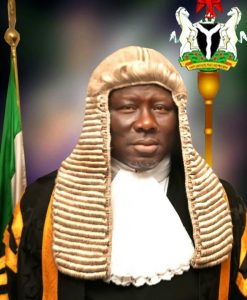
Delta State House of Assembly, Tuesday disclosed that the Delta State Property Development and Real Estate Regulation bill before it, will not only bar property developers from exploiting Deltans, but will advance housing stock in the state.
The bill which passed second reading during Tuesday’s plenary presided on by the Speaker, Rt. Hon. Sheriff Oborevwori, was meticulously debated following a motion by the lead sponsor, Hon Orezi Esievo.
Opening debate on the bill, Hon Esievo argued that the provisions of the 1999 constitution, allows every Nigerian the right to own property both moveable and immovable anywhere in Nigeria.
According to her, the bill seeks to ensure that Deltans get their fare share in housing schemes, adding that it will also promote and advance housing stock in the State.
The lawmaker also argued that the bill will promote affordable and decent housing, eliminate slums, promote diversity of neighborhoods and housing opportunity for Urban renewal.
Hon Esievo said the bill is basically to engineer institutional reforms as it focuses on property development and regulation of the real estate sector in Delta State.
She said, “It will attract investors to Delta State on housing capacity and industrial development.”
Joining the debate, member representing Oshimili North Constituency, Hon. Pat Ajudua in her debate stated that a major problem in the state for the working class is accommodation.
Hon Ajudua stated that the bill seeks to repeal the existing bill and to guide property developers in Delta State.
She said the state stands to benefit a lot from the quick passage of the bill as it bars property developers from taking advantage of the low income earners in Delta State.
Others who joined the debate including Honorables, Reuben Izeze, Efe Ofoburuku, Emeka Elekeokwuri Daniel Yingi, Oboro Preyor, Erhitiake Ibori-Suonu amongst others unanimously argued that the bill is timely and viable to housing and property management in the state.
They appealed to the House to give speedy consideration to the bill which they described as all-important.
The bill passed second reading after a voice vote conducted by the Speaker
Recent Comments